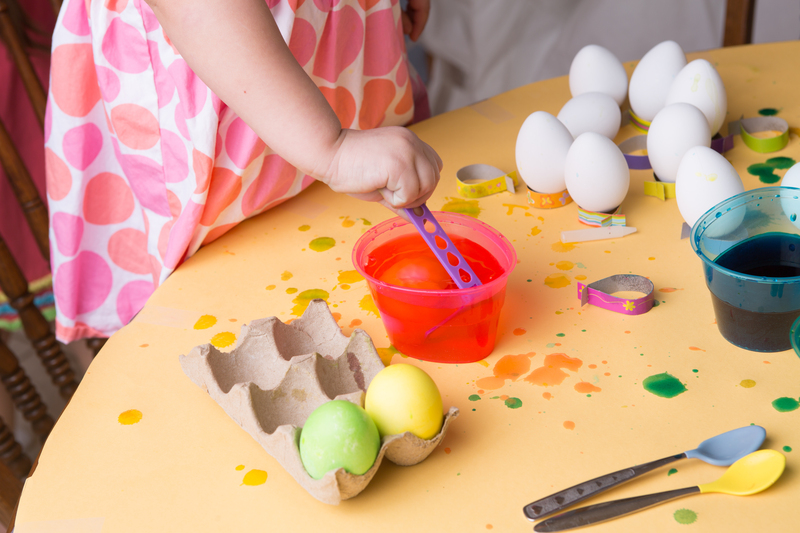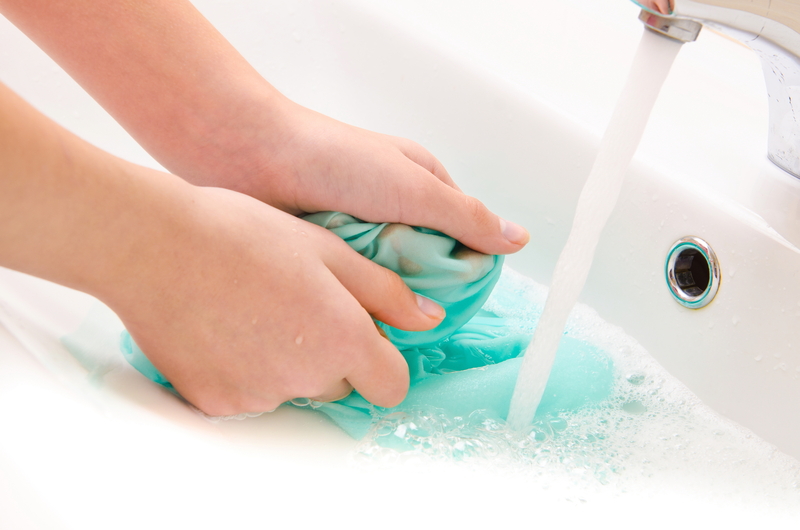Revitalize Your Home's Air by Removing Pet Odors
Posted on 05/10/2025
Revitalize Your Home's Air by Removing Pet Odors
If you share your life and home with pets, you know the joys and companionship they bring. However, you're also familiar with the persistent issue of pet odors. Furry friends, despite their many charms, can leave behind lingering smells that impact indoor air quality. Removing pet odors is essential for a healthy, fresh, and inviting home. In this comprehensive article, you'll discover proven techniques and strategies to completely revitalize your home's air by removing pet odors and restoring comfort for all.
Understanding the Origins of Pet Odors
To effectively eliminate pet smells, it's crucial to know where they come from. Pet odors aren't just the result of "accidents"; they can arise from:
- Pet dander (microscopic skin flakes that carry a characteristic scent)
- Fur and hair trapping smells
- Urine and feces from housetraining mishaps or litter boxes
- Saliva and scent glands
- Moisture and dirt brought indoors from paws
- Pet bedding and toys absorbing odors
Pet odors can penetrate deep into carpets, upholstery, flooring, and even walls. Left unchecked, these smells can become increasingly difficult to remove and may even affect your health, especially if you suffer from allergies or asthma.

Why Revitalizing Your Home's Air Matters
Poor indoor air quality can impact your well-being, cause respiratory issues, and generally make your space less pleasant. Removing pet odors is about more than masking smells - it's about creating a home that is fresh, hygienic, and inviting for everyone. Deodorizing your home and improving air quality can mean:
- Better sleep and concentration
- Fewer allergy symptoms
- Increased comfort for guests and family
- Reduced airborne bacteria and pathogens
- Higher property value and easier home resale
Step-by-Step Guide to Removing Pet Odors and Freshening Your Home's Air
1. Identify the Source of Pet Smells
Before you can effectively remove pet odors, you need to target problem areas. Conduct a room-by-room assessment and pay special attention to:
- Carpets and rugs
- Upholstered furniture
- Pet bedding and toys
- Litter boxes and cages
- Baseboards and walls where pets rub or mark territory
Use your nose - and if necessary, a UV blacklight to locate old urine stains that aren't visible to the eye.
2. Use Deep Cleaning Methods for Carpets and Upholstery
Carpets and soft furnishings are notorious for absorbing and holding onto pet odor. Deep cleaning is a must:
- Vacuum thoroughly with a HEPA filter vacuum to capture dander and hair.
- Rent or invest in a carpet cleaner with enzymatic formulas specifically designed to break down pet urine and organic smells.
- Steam cleaning can further sanitize and lift lingering smells from deep within fabric fibers.
- Apply baking soda liberally to carpets, leave overnight, and vacuum the next day for ongoing freshness.
If smells persist, repeat the process or consider hiring a professional cleaning service specializing in pet odor removal.
3. Launder Pet Bedding and Washable Fabrics Regularly
Your pet's favorite spots often harbor the strongest odors. Implement these steps:
- Machine-wash pet bedding, pillow covers, removable cushion covers, and soft toys every 1-2 weeks.
- Add a cup of white vinegar or baking soda to the wash to neutralize odor-causing bacteria.
- Air-dry items in the sun whenever possible for additional deodorizing power.
4. Treat and Prevent Accidents - Especially Cat Litter and Dog Urine
Urine is one of the strongest, most persistent pet odors. For recent accidents:
- Blot up as much moisture as possible immediately - don't scrub, which spreads the stain.
- Use an enzyme-based cleaner to break down uric acids that cause lingering odors. Standard cleaning products won't fully remove the smell.
- Clean litter boxes daily, and change litter at least twice a week. Wash the entire box with mild detergent and vinegar periodically.
- For set-in stains, repeat enzymatic treatments and consider professional help if necessary.
5. Focus on Air Quality and Ventilation
Keen to revitalize your home's air? Address the air itself:
- Open windows and doors regularly to let in fresh air, especially after cleaning.
- Install a high-quality air purifier with a HEPA filter to continuously remove pet dander and odors from the air.
- Change your HVAC filters more frequently if you have pets.
- Consider adding houseplants like peace lily, snake plant, and bamboo palm that naturally cleanse the air.
Good ventilation and air purification are among the most effective methods for keeping your home smelling fresh.
6. Use Natural Deodorizers and Avoid Harmful Scents
Instead of covering up pet odors with synthetic air fresheners, opt for natural solutions:
- Baking soda dishes placed around the home to absorb smells
- Activated charcoal bags in closets, pet areas, or near litter boxes
- Simmer cinnamon sticks or citrus slices on the stove for fresh, pet-safe fragrance
- Create homemade sprays with water, distilled vinegar, and a few drops of pet-safe essential oils (avoid tea tree oil, which can be toxic to cats and dogs)
Avoid using chemical sprays or plug-ins that may irritate your pet's sensitive respiratory system, or even cause long-term health issues.
7. Maintain a Regular Grooming Routine
Healthy, clean pets contribute far less to household odor. Maintain regular grooming by:
- Bathing pets as recommended for their breed and age (don't overwash, as this can harm skin and coat)
- Brushing out shedding fur and dander at least several times a week
- Wiping paws after outdoor walks
- Using pet-specific wipes between baths, especially for cats who self-groom less thoroughly than you assume
A clean coat means fewer odors brought into your home.
8. Discourage Re-Marking and Persistent Odors
Cats and dogs often re-mark areas where previous odors linger. To prevent repeated issues:
- Use enzymatic cleaners to completely break down residual scent markers
- Block access to repeatedly targeted areas until fully deodorized
- Address stress or behavioral triggers causing territory marking - consider a consult with your veterinarian or animal behaviorist if problems persist
- Provide enough litter boxes (1 per cat + 1 extra) or regular bathroom breaks for dogs
Long-Term Habits to Keep Pet Odors Away
- Vacuum and mop floors twice weekly
- Establish a "pet-free" room for allergy sufferers or guests
- Use washable furniture covers where pets lounge
- Replace heavily soiled carpets or rugs if persistent odor remains
- Work with a professional odor-removal or remediation company for stubborn cases
- Ensure scheduled vet checks to address potential underlying health issues causing increased odor (such as ear or skin infections)
Professional Solutions for Persistent or Severe Odors
In some cases, everyday approaches aren't enough. If you notice a strong pet smell that lingers after thorough cleaning, it may be time for a professional deep clean. Services can include:
- Hot water extraction carpets and upholstery cleaning
- Ozone treatments to remove lingering airborne particles
- Specialized odor neutralizers for walls, hardwood, and tile grout
- Assessment for underlying issues such as mold or water damage (which can worsen pet odors and air quality)
Professional help is invaluable if you're preparing your home for sale or moving into a property formerly occupied by dogs or cats.
Common Myths About Pet Odor Removal
- Myth: "Air fresheners and scented candles will fix the problem."
Fact: These products only mask odors temporarily; real removal requires cleaning and neutralization. - Myth: "Pets that don't have accidents won't cause odor."
Fact: Dander, fur, saliva, and natural oils all contribute to pet smell, even with perfect behavior. - Myth: "DIY solutions work for everything."
Fact: Home remedies can be effective, but some stains and smells need professional-grade treatments.

Embrace a Fresher, Cleaner Home Environment
Living with pets doesn't have to mean living with unpleasant smells. With persistence, the right products, and a commitment to ongoing maintenance, you can revitalize your home's air by removing pet odors and creating an environment that's a pleasure for pets and people alike.
The key strategies for a fresh home include:
- Identifying and deep-cleaning problem areas
- Relying on enzymatic and pet-friendly cleaning solutions
- Improving ventilation and air purification
- Adopting regular grooming routines
- Addressing persistent issues at the source
With these comprehensive strategies, you'll not only remove pet odors, but enjoy a healthier, more comfortable home - one your two-legged and four-legged family members will love!
FAQs on Removing Pet Odors and Improving Air Quality
-
Q: Can I use vinegar to remove pet urine smell?
A: White vinegar is effective at neutralizing many odors and is safe for most surfaces. For urine, pair vinegar with an enzymatic cleaner for best results. -
Q: How often should I deep clean when I have pets?
A: High-traffic areas and pet zones may need monthly deep cleaning, while daily sweeping and weekly vacuuming will help maintain freshness. -
Q: Are air purifiers really necessary?
A: Yes! HEPA air purifiers dramatically reduce airborne dander, allergens, and lingering smells, especially in homes with multiple pets. -
Q: What if my house still smells after cleaning?
A: Try repeating cleaning steps, focus on hidden spots, and consult professionals for severe odor or underlying damage.
Ready to enjoy a fresh, inviting home? Start implementing these pet odor removal tips today and breathe easy with cleaner, revitalized air!




